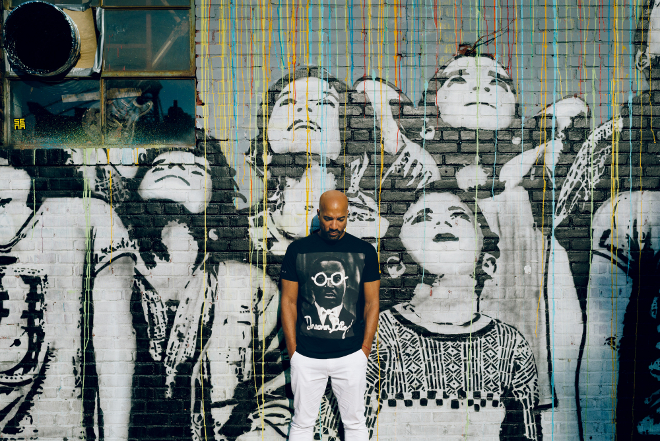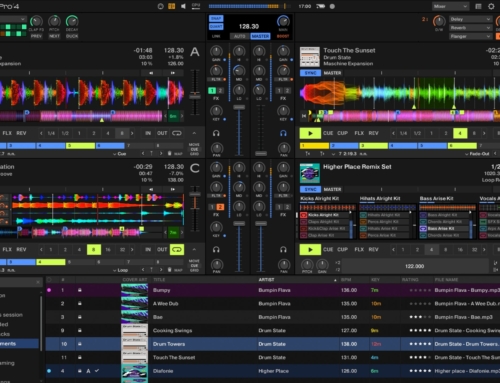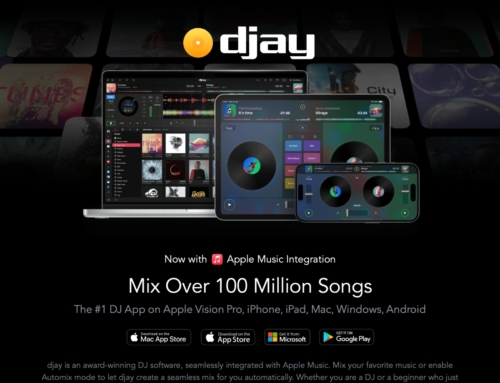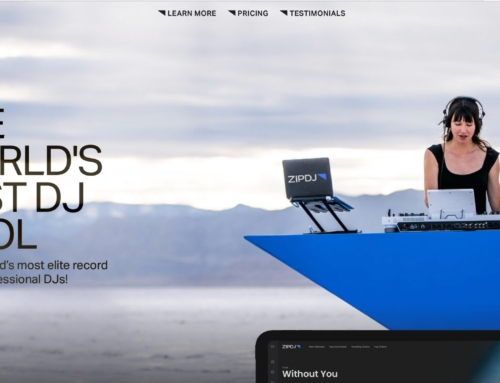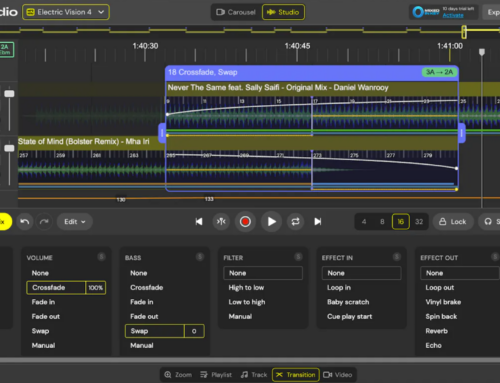Globetrotter House Music DJ Rob Keith has been a fixture in the NYC underground scene for many years, and he held down a long-standing residency at Manhattan’s notorious (and recently defunct) nightclub institution Sullivan Room for many years. The evergreen mixer is still at the top of his game, and shares his opinions with us on this and that:
Eric: Tell me about yourself.
Rob Keith: I am a guy who is a professional business person and also a professional in the music industry. I consider myself a pro in everything I have a passion for. But if I had to break that down into a few pieces, I’m an entrepreneur, consultant, manager, music aficionado, curator, DJ, producer, and an all-around creative thinker. I was born in Brooklyn. I’m a New Yorker my whole life, with a few short exceptions. I’ve had a lot of musical influences from family: my parents were very into music. My mother was a music teacher and a jazz dancer, and sung in the choir at church. My dad was a percussionist in a salsa band before he became a marine & NYC police officer, so lots of Caribbean music and Latin beats growing up in the house. I always knew I’d be doing something with music – I didn’t know how or when or what, but always knew it.
Eric: How long have you been DJing and producing?
Rob Keith: DJing and producing are very different. I’m 44 years old and been at it for 30 years. I’ll do it until I die. I just love creating a soundtrack, a journey, creating something emotional that makes people think about what’s important to them. As far as production, I grew up across the street from a noted house music innovator Lem Springsteen, which was half of
Eric: What was your first ever DJ experience?
Rob Keith: That was at a high school party. One of the cool older kids knew that I was DJing (at age 14) and asked me to do a summer house party when his parents were out, for 150 people. Old Gemini turntables! I wasn’t intimidated, I felt at home and I think that’s when I realized I wanted to do this. Mixing was a very manual thing, and especially considering I didn’t have the best gear. My parents were sort of sponsoring this as a bit of a hobby, until I eventually got my own proper gear.
Eric: What has kept you going for all this time?
Rob Keith: The love of the music. I’ve also had an affection for [electronic dance music]. It allows you to get in touch with your own emotions, both vocals & instrumentals, and I just never have been able to put it down. No matter what, I would mix music for the love of doing it, even if I was just doing it to share with my own friends.
Eric: What are your top three best classic tracks in your arsenal that today’s kids may never have heard of?
Rob Keith: I’ll take that back to late 80’s! “Move Your Body” by Marshall Jefferson, “Jack Your Body” by Steve Silk Hurley, and anything by the early Fingers Incorporated. But in the 90s I used to kill “Tears” by Satoshi Tomie and Robert Owens!
Eric: What are your top three secret weapons right now?
Rob Keith: There are not to many people that are go-to producers, so I can’t really say – that changes day to day. But three producers that I’m really vibing on right now are Adriatique, Stimming, and &Me. The common thread between them that attracts me, is production quality. Also their use of vocals are the real thing – you can tell these producers all have real musical backgrounds. The fact that they can produce a journey within a track is very difficult (versus the DJ weaving the journey) is tough to accomplish.
Eric: What is the biggest difference from the underground scene from 10 years ago compared to now?
Rob Keith: I’m older! Seriously though, the advent of technology allows for an large number of tracks to come out into the market, and it’s incredibly difficult to keep track of what’s coming up, just the sheer volume is tough to manage. I used to know what artists to go to for what, there were simply less of them, but now there are constantly new artists coming forth. Is that a good thing or a bad thing? I think a good thing. It pushes the limits of people’s creativity and creates competition. You have to sift through more junk to get to the diamonds, but there are a lot more diamonds under there once you do find them.
Eric: What are your thoughts on the whole laptop vs CDs vs vinyl debate in the DJ world?
Rob Keith: As vinyl DJs, it took a lot of work on your craft to be a good DJ. Then with CDs, and now laptops, have made it much easier and more accessible. If I were 16 today, I wouldn’t care about all of that, and would choose my weapon and use the top technology. When I started, I had vinyl to work with, so that’s what I used. But bottom line, as long as you play well, I don’t care what technology you use. I think it’s funny nowadays when people say “I’m doing an all-vinyl set” – you are not proving anything to me just because you use vinyl, that’s not what makes the party – it’s what you are playing that will make or break the party.
Eric: What’s the best way to brand yourself as a DJ in the current market and gain a reputation and following?
Rob Keith: Very easy – make hit tracks. Everyone is a DJ now. Everyone can mix, everyone can DJ a party. Even if you are a great DJ, unless you have been around a long time, you won’t get gigs outside of your area because nobody has heard of you. Make hit music, and write your own ticket.
Eric: Tell me about Frisky Radio.
Rob Keith: Frisky Radio (www.friskyradio.com) is an online radio station that specializing in curated underground electronic dance music. I was exposed to it as a guest DJ back in 2006, when I started getting occasional guest spots from people who had their own shows on the station. At the time it was purely a progressive-house radio station. Over time they have expanded their tech platform, expanding their reach, and expanding their musical horizons. Me and my partner Rich Foster (aka 2 Damn Cheeky) got our own show 5 years ago. Today I think that Frisky leads the pack in terms of quality-curated DJ mixes that leans into the deep-house and tech-house sub-genres. As far as the company itself, I have actually joined the company to help expand the brand internationally. I joined not because I had a show on it myself, but I think this platform has a lot of promise moving forward. It’s a private company and doesn’t rely on corporate funding to do well, and will continue to do well as the platform and brands grows and grows as the go-to cutting-edge station, whether it be underground or mainstream dance music.
Eric: 2014 is the summer of ‘trap’. What do you think is the next musical trend in the world of EDM?
Rob Keith: I can’t even explain to people what the ‘trap’ genre is, I can’t seem to absorb it. We’ve seen minimal-house as a big trend, then dubstep, now trap. But honestly I can’t really say what the next musical trend is in electronic music. I think it will be determined by the fans, and the machine behind the music, the large corporations and brands in the background.
Eric: Drugs have been in the news a lot lately in the world of EDM, more than ever. How closely do you think drugs are connected to the current EDM scene?
Rob Keith: When we look at large festivals, like over 10,000 fans, it turns into a carnival-like atmosphere. In those contexts, people want to lose themselves, and often drugs are associated with that. I don’t think that drugs are connected specifically to electronic music – you see them in blues, jazz, rock. But what we see now is that kids in the EDM scene are into amphetamines and MDMA. But that’s more youth culture than music – we saw that in the 60’s and 70’s but it was because it was a youth movement, regardless of the music genre. Honestly I think that the problem is being magnified because of the sheer size of the big EDM festivals we see out there.
Eric: But the small local club has drug abuse problems just as large “carnival-esque” festivals. How do you react to that?
Rob Keith: A small club won’t get the press attention, but it will if there are 50 kids that have been affected by drugs at a large festival at Met Life Stadium. It could happen just as easily as at your local pub with people playing darts and listening to Credence Clearwater Revival and doing coke in the bathroom.
Eric: What are your feelings around celebrities that are claiming superstar DJ status, like Elijah Wood and Paris Hilton? What would you tell them if they were sitting in front of you right now.
Rob Keith: I would tell them that, because of their fame, there will be DJs that have spend more times at their craft and paid their dues more, and will never have the opportunity to bill hundreds of thousands of dollars in Ibiza. They will get a lot of flack from the everyday DJ/producer. It’s not impossible to gain credibility, but they need to love what they do and be honest about it and pay their dues too. But at the end of the day, they make all that money because they draw a huge crowd. So you can’t be mad at a club that pays Paris Hilton outrageous fees because they are making a shit-ton of money at the door, but to those DJs, I don’t think they will ever really be accepted in this scene – they are only there because of their celebrity status. That isn’t just towards celebrities that are DJs – it’s also to talented EDM producers that just can’t rock a party as a DJ. And vice versa, you have great DJs that can’t produce. So it’s even people inside the music industry that really shouldn’t be DJing a party.
Eric: Wise words to new DJs? How about old DJs?
Rob Keith: To new DJs, I would just say, know your music and really spend time on your craft, and I don’t mean just putting a set together – I mean learning about the music you are listening to and see how it would work together with a song from another genre, in a party situation. Just spend time at your craft and you will get the respect you are due. Know your music, knee-deep. To old DJs, don’t be afraid of technology. Don’t be afraid to leverage existing today’s technology. Don’t be stuck about how it was “back in the day” – you can’t keep living in the past. Embrace technology, embrace new ways of delivering your sound, and get it out there – or your will just get left behind. Nobody has time to hear what happened “back in the day” – nobody cares.
